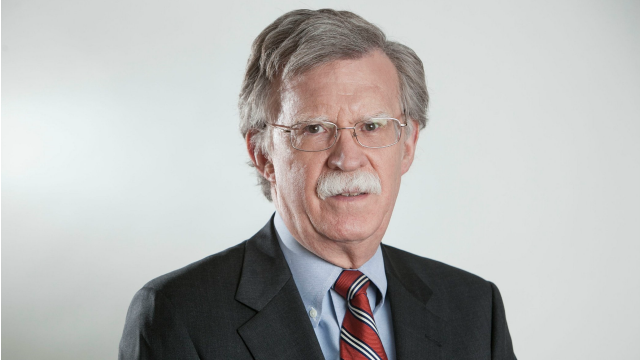India & Pakistan "Keen” to Improve Relations
By Nilofar Suhrawardy, MMNS
NEW DELHI – Believe it or not, India and Pakistan have come a long way from the period when terrorism obstructed improvement in their relations. Now, rather than point fingers at each other regarding terrorism, the two sides are keen to sit across the table and discuss the issue. On this, Pakistani envoy Shahid Malik told this correspondent said that both sides have “reaffirmed their commitment†on not letting terrorism “act as a roadblock.†“We are keen to root out terrorism through joint efforts,†he said.
Undeniably, India and Pakistan still entertain differences on various issues. The positive factor is that they are “keen†to “further improve†their relations. “There is the genuine desire at the top levels to improve relations,†Malik said. Comparing the present day situation to what it was like, when he was here as Pakistan’s deputy high commissioner (1992-95), Malik said: “The situation is much better now. Today, we are holding discussions on a number of issues, including Kashmir.â€
Malik drew attention to Indian External Affairs Minister Pranab Mukherjee’s recent visit to Pakistan, during which he and his counterpart Makhdoom Shah Mahmood Qureshi held talks in a “friendly and constructive atmosphere.â€
The two foreign ministers reviewed the progress made in the fourth round of composite dialogue, a process which has been set into motion from June 2004, encompassing talks on peace and security, including confidence building measures (CBMs), Jammu & Kashmir, Siachen, Sir Creek, Wuller Barrage/Tulbul Navigation Project, terrorism, drug trafficking, economic and commercial cooperation and promotion of friendly exchanges in various fields.
“Structured discussions are taking place on these issues. This spells out not only the progress made (in these areas), but also is a roadmap for the future,†Malik pointed out. The process of holding talks to resolve their differences is a major development in Indo-Pak diplomacy, compared to the past, when they were assumed to be perpetually in a near-war and/or war-like situation.
Expressing confidence that Kashmir issue would be resolved in the coming days, Malik said: “The important thing is that talks are being held on Kashmir. It would be a failure, when we stop talking. We are hopeful that one day this issue would be resolved.â€
Inking of the agreement providing consular access to detained nationals of either country, last month, is yet another step forward in improvement of Indo-Pak ties, according to Malik. Now, each side has to inform the other country, within three months, if a citizen of theirs is arrested and sentenced. Besides, the citizen has to be released within one month of his completing the sentence. He would be entitled to monetary compensation for being detained for a longer period, Malik said.
On the factors, which have given a new momentum to Indo-Pak ties, Malik replied: “Political leadership on both sides is keen that relations must improve further.†It is because their “intention†is supported by “practical moves,†that steps are being taken in this direction, he said.
In addition to the new importance gained by cricket diplomacy and people to people interaction, Malik pointed to “realization†on both sides of the need to improve bilateral trade. “During the last four years, there has been 580 per cent increase in bilateral trade, from $320million in 2002 to $1.6 billion this year,†Malik said.
Improving trade ties is a “win-win†situation for both the countries, Malik emphasized. “We are exporting cement to India in a big way,†he pointed out.
Pakistan exported 45,000 tons of cement in April and 60,000 tons of cement in May to India by train.
Delhi state government has recently sought center’s approval for importing cheap cement from Pakistan to help it complete construction of projects associated with Commonwealth Games 2010.
“The Pakistan government is willing to facilitate trade expansion with India,†Malik said. Healthy discussions are taking place between the business communities of the two countries, he said.
When questioned on removal of certain hurdles such as tariff and non-tariff barriers to give a boost to Indo-Pak trade, Malik replied that Pakistan was ready but these moves must take place at a balanced level, without being one-sided.
On the Iran-Pakistan-India gas pipeline, Malik said that it would benefit all the parties involved.
Drawing attention to the “quantum increase†in the number of agreements inked between the two sides, of which the increase in air flights from 12 to 28 per week from each side, is a minor example, Malik said.
The coming weeks are likely to witness further progress in Indo-Pak ties. In addition to Pakistan hosting the Asian Cup (cricket), foreign secretaries of the two countries are to launch the fifth round of composite dialogue in New Delhi during the coming month. The stage would be set for this with Pakistan’s Foreign Minister Qureshi’s three-day visit to New Delhi, starting June 27.
Expressing that media has played a “very important role†in bringing the two countries together, Malik said, “hostile propaganda†and “unsubstantiated stories should be avoided.â€
The realization that improvement in their ties, as described by Malik, is a “win-win†situation, has led to India and Pakistan move towards normalization of their relations with a new alacrity. The past when they were better known as permanent enemies seems now confined to history books.
10-26












2008
910 views
views
0
comments